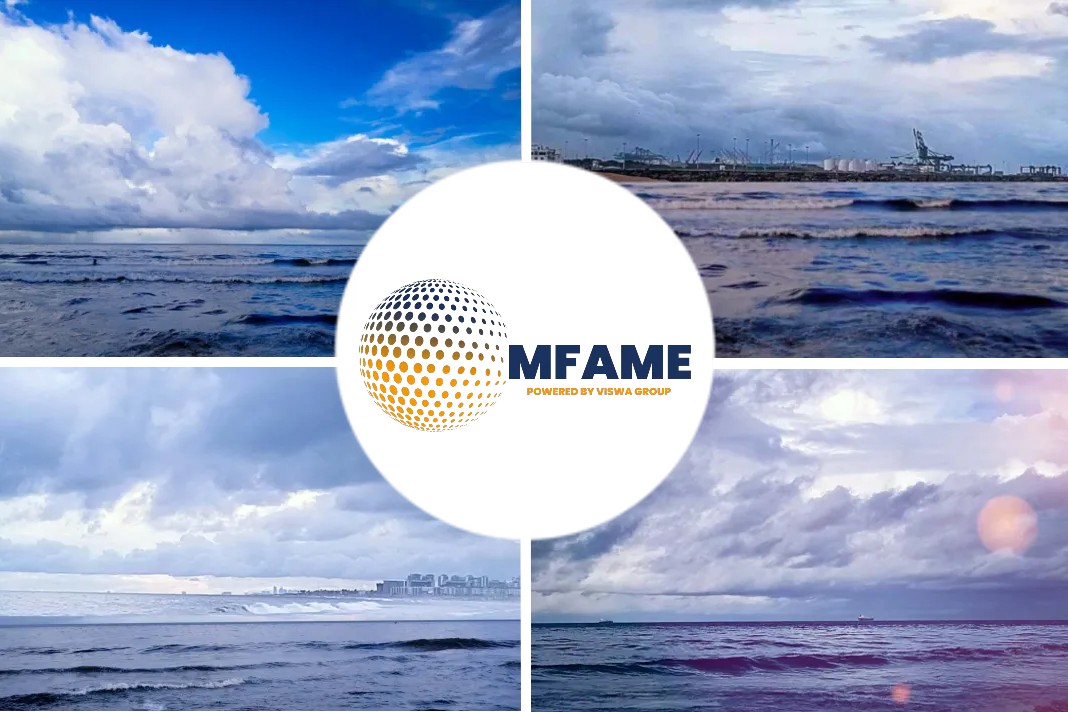
This year’s essay competition asked young people from across the globe to reflect on what an inclusive transition to a sustainable maritime industry means to them. Japanese essay competition winner Saki Inoue argues for 3 main points which can support the sustainable revolution: seafarers as sustainability boosters, maritime education and training reform, and additional support for developing countries, reports Global Maritime Forum.
The shipbuilding sector is designing less-resistant ship structures to improve efficiency, and ports are digitalizing. But what about us seafarers? Will we just wait for greener ships to be built? How can we engage in a sustainable transition?
The fuel transition
Discovering how to weather this transition period, when conventional and greener ways coexist, is essential. The fuel transition will phase out heavy fuel oils and replace them with promising choices such as hydrogen, LNG, and wind-assisted propulsion. Just as always, the seafarer’s mission is to choose which ship to board. Seafarers can help shape the future of the industry by applying for companies that focus on sustainable shipping. Shipping companies need to ramp up promoting the appeal of their environmental initiatives to future employees. Make sustainability the crucial factor when choosing what company to work for.
Governments of the world should promote the United Nations Sustainable Development Goals (SDGs) to classify shipping companies and visualize their environmental contribution. According to a survey conducted by the Ipsos Group in 2019, 74% of adults globally are aware of SDGs. The survey asked almost 20,000 people aged 16 to 74 from 28 countries about their familiarity with the SDGs, and the younger generation under 35 was the most aware of them. This means that SDGs can be an obvious index to fathom corporate sustainability and pave the way for future seafarers to make greener choices.
For instance, efforts for alternative fuel can be measured by Goal 7, Affordable and Clean Energy. The Goal needs to be subdivided by the percentage of available decarbonized ships, such as 10% for Goal 7 Level 1, 30% for Level 2, and 50% for Level 3. The same can be done for ship- recycling via Goal 12, Responsible Consumption and Production, while eco- friendly hull coating realizes Goal 14, Life below Water. Ultimately, company principles on sustainability are attributed to Goal 13, Climate Action. This worldwide indicator empowers the next generation of seafarers to shape the sustainable aspects of the maritime industry.
Digitalization is essential to bolster decarbonization
Digitalization is essential to bolster decarbonization. Automating aspects of shipping can create efficient conveyance and reduce GHG emissions. Automated ships, and various automated technologies such as weather routing, which is a technology that chooses the most efficient course using satellite weather information, are already being implemented. Despite these advances in automation, some experts argue that they would erode seafarer duties. This erosion can be attributed to how automated features require less manpower, and furthermore, AI will learn over time from savvy who possess a wealth of knowledge and navigational abilities. I believe that the duties of the next generation of seafarers will not diminish, but rather will change into newer skill sets to operate, maintain, and design these technical components.
One major prerequisite for automation is to train and educate well-informed users who will be able to best utilize the new automated systems. Future seafarers need adequate navigational knowledge, and just as importantly, a capacity for high-level critical thinking, troubleshooting methods, and comprehensive academic abilities. With the lead of governments around the world, maritime education and training (MET) should evolve to contain more advanced classes that teach these abilities to future seafarers in addition to the expertise-centered specialized classes currently found in MET curricula. By changing education, the maritime industry can gain a new future workforce that smoothly integrates corporate collaboration while boosting a resilient society.
Transition towards sustainability
Of course, approaches for the cultivation of sustainable seafarers must apply to developing countries. In the transition towards sustainability, developing countries in the world are akin to seafarers in the maritime industry. At first glance, both seem to be distal ends of the global maritime apparatus waiting for the signal to come, but they are actually the heart of this revolution. Without the cooperation of end users, cutting-edge green technology won’t be fully implemented. Their voluntary involvement in ecological issues is crucial for sustainable decisions as well. If developing countries only follow the lead of other countries, they will be so far removed from the development processes that propulsion innovation and digital transformation can remain out of reach.
This distance from the epicenter of change makes it harder for developing countries to comply with new standards. Today, more than 3 billion people, largely in developing countries, make a living through some sort of connection to the ocean and suffer from climate change. Against this backdrop, the International Maritime Organization (IMO), the United Nations Conference on Trade and Development (UNCTAD), and others are providing financial and technical support. Along with these supporting measures, developing countries need further opportunities including involvement in policy dialogue and academic conference participation. They need to be more engaged in sustainability-building, rather than just waiting to be trained. Developing countries must not only adjust to upcoming changes but also be the creators of those changes.
In the ecological revolution we are witnessing, every industry should be environmentally accountable for its work. Wherever you’re working, green shipping is on your shoulders. Your understanding of an adjacent sector can innovate the maritime industry. “A good seafarer takes time to understand the engine of their ship.” A greener industry requires mutual understanding, communication, and incorporating advances beyond any single specialty. In a similar way, sailors need further knowledge, skills, and training to prepare them for the changing world. Every policymaker should act to provide clear benchmarks for corporate efforts, education reform, and construct engaging facilitation systems. By striving to achieve these efforts, we can realize a sustainable industrial revolution.
Did you subscribe to our daily Newsletter?
It’s Free! Click here to Subscribe!
Source: Global Maritime Forum















